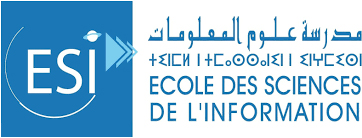Data science is an interdisciplinary field of study that uses complex processes, approaches, methods, systems and algorithms to extract the necessary knowledge and information from structured and unstructured data.
In fields such as healthcare, education, finance, security and energy, the application of data science has created numerous opportunities for innovation and improvement.
To meet these needs, new research themes centered on computer science and data and information science have emerged. These themes fall under the umbrella of artificial intelligence, and include Big Data, Cloud Computing, Machine Learning, Deep Learning and more.
The doctoral program aims to :
- maintain a scientific and technical watch on areas of interest;
- contribute to the development of applied research in the fields of computer science and data and information science;
- capitalize on and promote research results through participation in national and international conferences and scientific publications in indexed journals;
- contribute to improving the quality of higher education and Research & Development;
- contribute to the reputation of ESI as an engineering school training data and knowledge engineers and researchers.
Admission requirements
The conditions for admission to ESI’s doctoral program are as follows:
Diplomas required:
- Master’s degree
- Engineering degree or recognized equivalent
- “Informatiste Spécialisé” diploma
- DESA diploma
Scientific and pedagogical prerequisites
- Fluency in French and knowledge of English
- Good computer skills
Course program
Transversal modules
First year
- Research ethics and scientific integrity
- Research methodology
- Critical reading
- Researching scientific and technical information
- Introduction to Latex Writing
Second year
- Entrepreneurial culture
- Information law
- Open access to scientific and technical information
- Pedagogy at universities
- Scientific communication and publication
- Innovation and patenting seminar
Specialty modules
This training is specific to each doctoral student, depending on the nature and prerequisites of his/her research topic. The choice of module(s) is made by the doctoral student in consultation with his or her thesis supervisor, and is based on the complementary skills and scientific fields likely to help the doctoral student advance in his or her research work. Attendance certificates are issued. It is 100 hours long. These 100 hours can be accounted for in the form of :
- Participation in seminars, conferences, thematic schools, elective courses, doctoral days,
- Participation in the organization of scientific and cultural events, etc.
